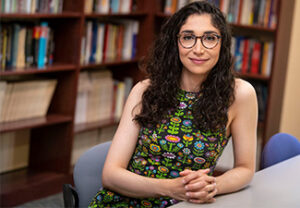The Logic and Philosophy of Science Group is pleased to welcome guest speaker Francesca Zaffora Blando, an assistant professor in the Department of Philosophy at Carnegie Mellon University. Dr. Zaffora Blando specializes in logic, formal epistemology, and the philosophy of science—in particular, the philosophy of probability and induction. Most of her work is devoted to showing that the theory of algorithmic randomness—a branch of computability theory—can be fruitfully applied to shed light on the foundations of inductive learning.
This is an in-person event, but audience members can also join the livestream on Zoom: https://utoronto.zoom.us/j/8187874412
Talk Title
Pride and Probability
Talk Abstract
Convergence-to-the-truth theorems are a staple of Bayesian epistemology. Yet rather than seeing them as an asset of the Bayesian framework, a number of authors take them to be the Achilles heel of Bayesianism. Most recently, Gordon Belot argued that these results mandate a sweeping epistemic immodesty on the part of Bayesian agents, since Bayesian agents are bound to believe they will be inductively successful even when they are guaranteed to fail on a topologically “large” collection of data streams. My aim in this talk is to shed new light on the question of when Bayesian convergence to the truth occurs not only on a set of probability one, but also on a co-meagre set (a topologically typical set). I will show that, by classifying the inductive problems faced by a Bayesian agent (the random variables a Bayesian agent has to successfully estimate) using the tools of descriptive set theory and computability theory, one can identify natural classes of learning problems for which convergence to the truth indeed happens on a co-meagre set. Moreover, appealing to computability theory allows to offer a much more fine-grained analysis of the phenomenon of Bayesian convergence to the truth. In particular, I will show that the theories of algorithmic randomness and effective genericity can be used to single out specific co-meagre sets of data streams along which successful learning provably occurs, no matter which inductive problem from a given class of effective inductive problems the agent is trying to solve.
About the Logic and Philosophy of Science Group
One of six departmental Research Interest Groups, the Logic and Philosophy of Science Group hosts talks on logic, general philosophy of science, and philosophy of the particular sciences, as well as talks in allied areas such as formal epistemology, decision theory, and the metaphysics of science.
SHARE


